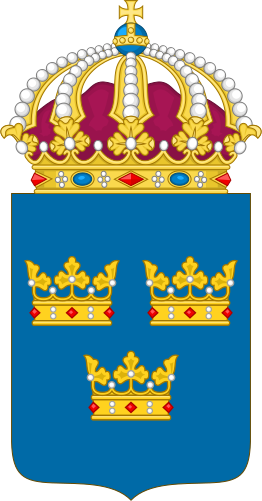Community / Land projects / SNV 2023-2025: Peaceful cross-border pastoralism in the Sahel (MOPSS) - Phase 2 - MOPSS Phase 2 - Regional com
SNV 2023-2025: Peaceful cross-border pastoralism in the Sahel (MOPSS) - Phase 2 - MOPSS Phase 2 - Regional com

€7091884.225
04/23 - 12/26
Active
This project is part of
Implementing Organisations
Donors
Data Providers
General
This contribution concerns a support of SEK 110 million for a period of three years to a program called MOPSS. The program aims to promote peaceful coexistence between primarily livestock farmers and sedentary farmers in the border areas of Western Sahel (Mali , Burkina Faso, Niger, Benin, Togo, Ghana, Ivory Coast), and a strengthened consensus on how limited natural resources such as water, land and grazing can benefit all groups and how conflicts around them can be prevented and resolved. The name MOPSS refers to the French name of the program which is freely translated into English as follows: "Peaceful cross-border movement for livestock in the Sahel and social stability" (Mobilité Pastorale transfrontalière apaisée et Stabilité social au Sahel). The program is led and implemented by a consortium that includes, among others, the herders' and farmers' own regional socio-professional organisations in the Sahel (ROPPA, APESS, RBM). Sida continues to see an intrinsic value in supporting the herders own interest organisations and the special contribution wellfunctioning, legitimate and representative civil society organisations can make to conflict resolution and conflict prevention, both directly through various forms of mediation and stakeholder consultations, as well as indirectly through a policy environment and investments that take the special needs of mobile livestock rearing into account. The programme is aligned with the interest organisations' own objectives, as well as ECOWAS national policy and institutional frameworks, and the African Union's guidelines to secure pastoralism and prevent conflict in Africa. The aim of MOPSS is: 1) Livestock mobility and the land rights of pastoralists and agropastoralists in the targeted crossborder areas are better secured. 2) Livelihoods of vulnerable agropastoral and pastoral households (in particular livelihoods for women and youth) are secured, sustained and developed. 3) Pastoral and agropastoral civil society organisations increase their influence and are more representative, reactive and accountable.
Objectives
The overall objective of the program at impact level is to contribute to increased social cohesion of transhumance communities in cross-border areas in the Sahel and the Gulf of Guinea through strengthened resilience against climatic and security chocks, peaceful pastoralism, and an inclusive and integrated local economy. More specifically, the aim is that 80% of the households in targeted communities live in peaceful coexistence with pastoral communities. Three levels of results have been formulated: - Long-term outcomes (LTO), expected to be realised within 36 months, i.e. the duration of the project. - Medium-term outcomes (MTO), expected to be realised within 24 months. - Short term outputs (CTO), expected to be realised within 12 months. Long- and medium-term outcomes have been translated from French and are listed below. For short term outputs, see result framework attached to the project document. Long term outcome 1, LTO1: Livestock mobility and the land rights of pastoralists and agro-pastoralists in the targeted cross-border areas are better secured. MTOs linked to LTO1: MTO1.1: The host communities have an improved perception of livestock mobility and cross-border transhumance. MTO1.2: The states adopt and scale up innovative tools and approaches for regulating transhumance (ICT, traceability, marital status, security). MTO1.3: The family / household production units have access to information and verified early warning signals, legal assistance, dialogue platforms, civil society mediators and protection measures against insecurity. MTO1.4: The constituent parts and membership of the National Transhumance Committees and other frameworks for natural resources management capitalize on innovative solutions and mobilise resources from states and donors for this purpose. MTO1.5: The decentralised state institutions (municipalities, districts, regions) and their representative associations and informal institutions for local dialogue manage natural resources and land rights in an inclusive, consensual and equitable manner. Long-term outcome 2, LTO2: Livelihoods of vulnerable agropastoral and pastoral households (in particular livelihoods for women and youth) are secured, sustained and developed. MTOs linked to LTO2: MTO2.1: The vulnerable pastoral and agro-pastoral family/household production units have improved their productivity, diversified their income sources and mitigated their pressure on land and natural resources. MTO2.2: The enterprises and cooperatives active in the value chains linked to farming, livestock, forestry and fishing are more inclusive with regard to women and youth and better performing. MTO2.3: The pastoral and agro-pastoral family/household production units who suffer external shocks and/or live as IDPs, together with the host communities, have access to means of production with limited land requirements. Long-term outcome 3, LTO3: Pastoral and agro-pastoral civil society organisations increase their influence and are more representative, reactive and accountable. MTOs linked to LTO3: MTO3.1: The producers' organisations and their members participate effectively in the processes to formulate, implement and monitor policy in the areas of agriculture, livestock, forestry and fishery which is conflict and gender sensitive, respectful of human rights, and promotes social inclusion and nutrition. MTO3.2: The producers' organisations contribute to knowledge production with regard to enhanced equity and inclusivity for triple nexus practises which are favourable towards pastoralist and agro-pastoralist communities and can be put to scale.



